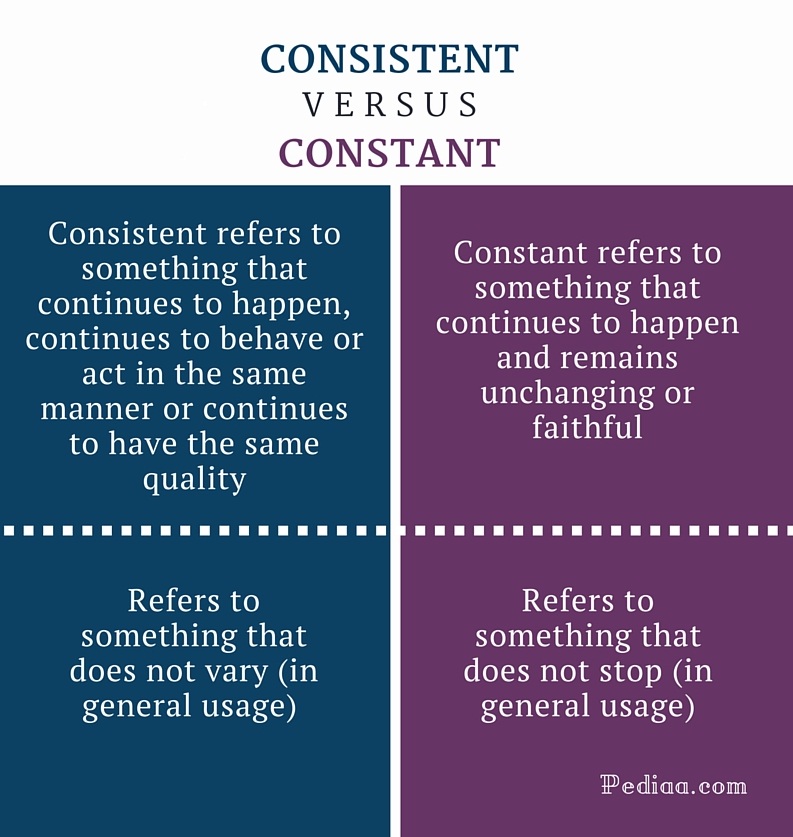
Starting with simple daily habits can lead to a life of achievements. Achieving significant goals takes time and persistent effort. Sticking to your plan every day adds up and moves you closer to your ultimate aims. This approach keeps you on track and helps you push through tough times. When it comes to setting and achieving goals, consistency is critical.Consistency in goal setting involves regularly reviewing, adjusting, and reaffirming your objectives. Finally, if you want to take your goal-setting efforts to the next level, check out this FREE printable worksheet and a step-by-step process that will help you set effective SMART goals.
- It’s good to have lots of big aspirations, but if you feel you’re inconsistent and want to work on that, it’s a good idea to pick one big goal that’s really important to you and pour all your energy into it.
- The world today revolves around providing instant gratification, and the presence of technology has made people more impatient, and they want quick results.
- It transforms aspirations into achievements and dreams into realities.
How to Be Consistent: 10 Reasons Why It’s the Secret to Success and 20 Practical Strategies for Daily Discipline
On the basis of her recommendation, the term psyched-up (as well as challenge) was examined as the positive counterpart to threat. It is important to note that perceiving threat in negative experiences has adaptive benefits (e.g., when dealing with immediate, negative circumstances). In prolonged periods, however, this negative appraisal style can have deleterious effects on one’s psychological and physical well-being (Folkman & Lazarus, 1985; Tomaka et al., 1997).
Achieving Consistency: How to Be and Remain Consistent
When you’ve achieved something—great or small—take a moment to celebrate however you feel like it. Seek out people who are working on their own goals and committed to making progress every day. These may be friends and family members you already know, or you may want to make new friends who share the same goals.
Consistency Contributes to Accountability
Do these kinds of things consistently to push through the urges and cravings that come with bad habits and develop healthy new ones that get you closer to what you want in life. Consistency is much more than just going through the motions; it’s about focusing on what you want to achieve in life and then making a plan to get there. Consistency brings progress, and progress is what a happy life is all about. Instead, we’ll explore the true meaning of consistency and how it can actually make life more exciting. And we’ll explore how to be consistent with practical strategies that will bring you closer to your goals in life sooner. When trying out to do something new, you can only determine if it will be a success or a fail if you do it consistently for some time.
While you don’t necessarily need to cut these people out of your life entirely (unless they show toxic traits), you may want to limit your contact with them while you focus on your goals. Performing actions consistently involves doing the same activities almost every day (we do need breaks sometimes). The moment we skip doing something for a day, or even two, and then our objective fails, it’s easy to see why such a thing happened.
Study 2

As proposed by the broaden-and-build theory (Fredrickson, 1998, 2001), experiences of positive emotions during times of stress prompt individuals to pursue novel and creative thoughts and actions. Finally, we predicted that differences in time to achieve cardiovascular recovery would be mediated by experiences of positive emotions (Hypothesis 4). A foremost limitation is that one is unable to make generalizations to situations when stressors are not laboratory-induced. How might these emotion regulation processes be reflected in the ongoing occurrences of everyday life? Study 3 examines how high- and low-resilient individuals negotiate the negative circumstances that they face daily. The objective is to understand psychological resilience, positive emotions, and emotion regulation in naturally occurring (as opposed to laboratory-induced) stressors of everyday life.
Setting clear, quantifiable goals allows you to monitor your progress and maintain consistency in your efforts. By embracing goal specificity, you create a concrete pathway towards your aspirations. When you break down your journey into measurable milestones, you chart a path to success and empower yourself with the freedom to adjust as needed.
Throughout this research, we found that high-resilient individuals tend to experience positive emotions even amidst stress. According to this interpretation, resilient individuals may not care or are relatively unconcerned about their problems. Future studies could also examine other factors that contribute to the effects revealed by Study 3. A number of studies have found that the very act of writing about problems has positive effects (e.g., Pennebaker, Kiecolt-Glaser, and Glaser, 1988). Measures of psychological resilience, subjective emotion reports, and positive and negative ambient mood were identical to those reported in Study 1. In addition, after participants received instructions for the speech task, they were then randomly assigned to hear one of two instruction sets, emphasizing either challenge or threat.
Just make sure that you’re more consistent than not, and eventually, you’ll start to see the results you want. Maybe if you’re feeling like that, especially if you’ve created being consistent meaning a habit, you could be burnt out? I recently discovered a chart by Liz Fosslien it showed the difference between relying on motivation and relying on consistency.
Consistency requires a long-term commitment from you and involves sustained effort in doing actions repeatedly until you achieve your goals. Discipline, accountability, and responsibility are all parts of staying consistent. Consistency can spell the difference between failure and success. Being consistent can help anybody to achieve success in any field of endeavor. When we clearly see how daily actions contribute to our larger goals, we find meaning and motivation in the tasks we perform every day. Approaching tasks and challenges with consistency encourages a proactive way of thinking.
Write about the experience in as much detail as you can. Really get into it and freely express any and all emotions or thoughts that you have about the experience. As you write, do not worry about punctuation or grammar; just really let go and write as much as you can about the experience. Positive and negative mood were assessed with a modified version of the Positive and Negative Affectivity Schedule (PANAS; Watson, Clark, & Tellegen, 1988).